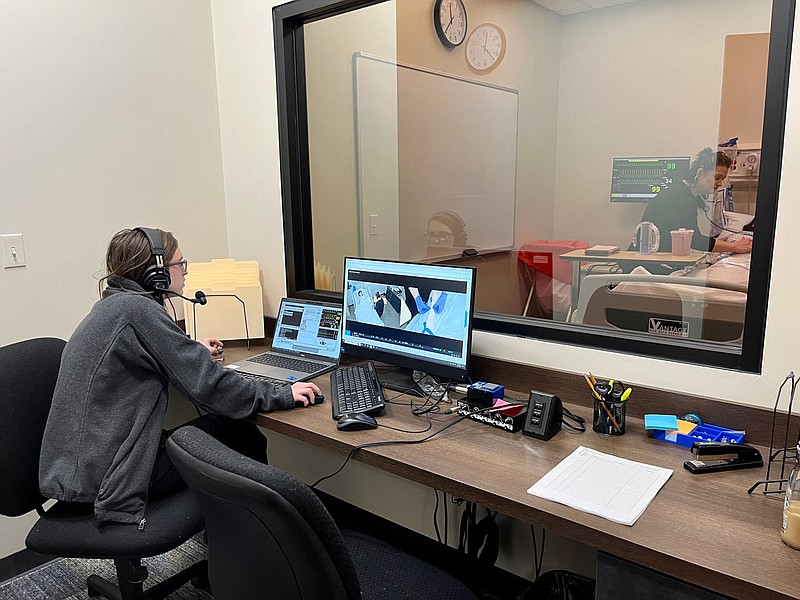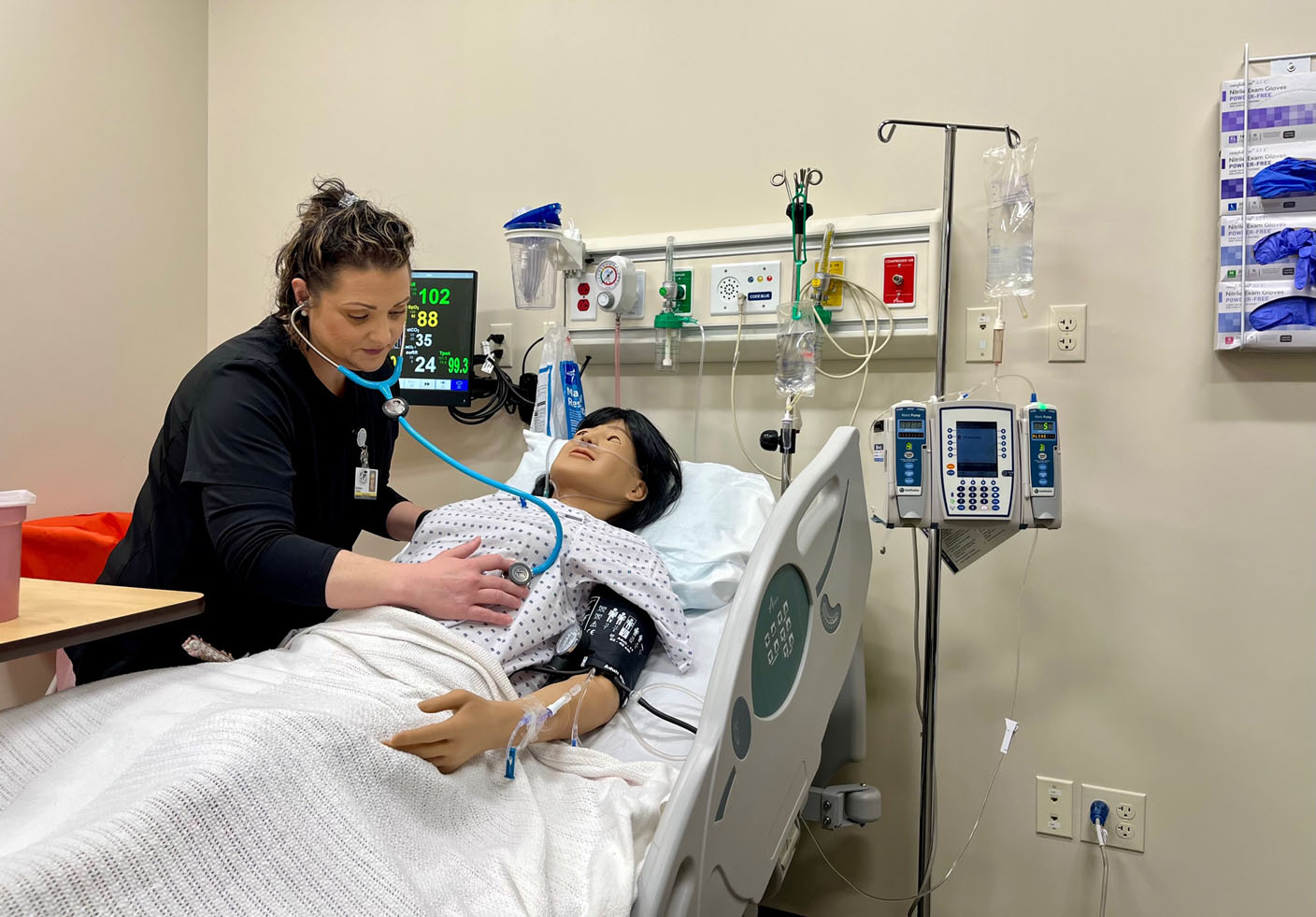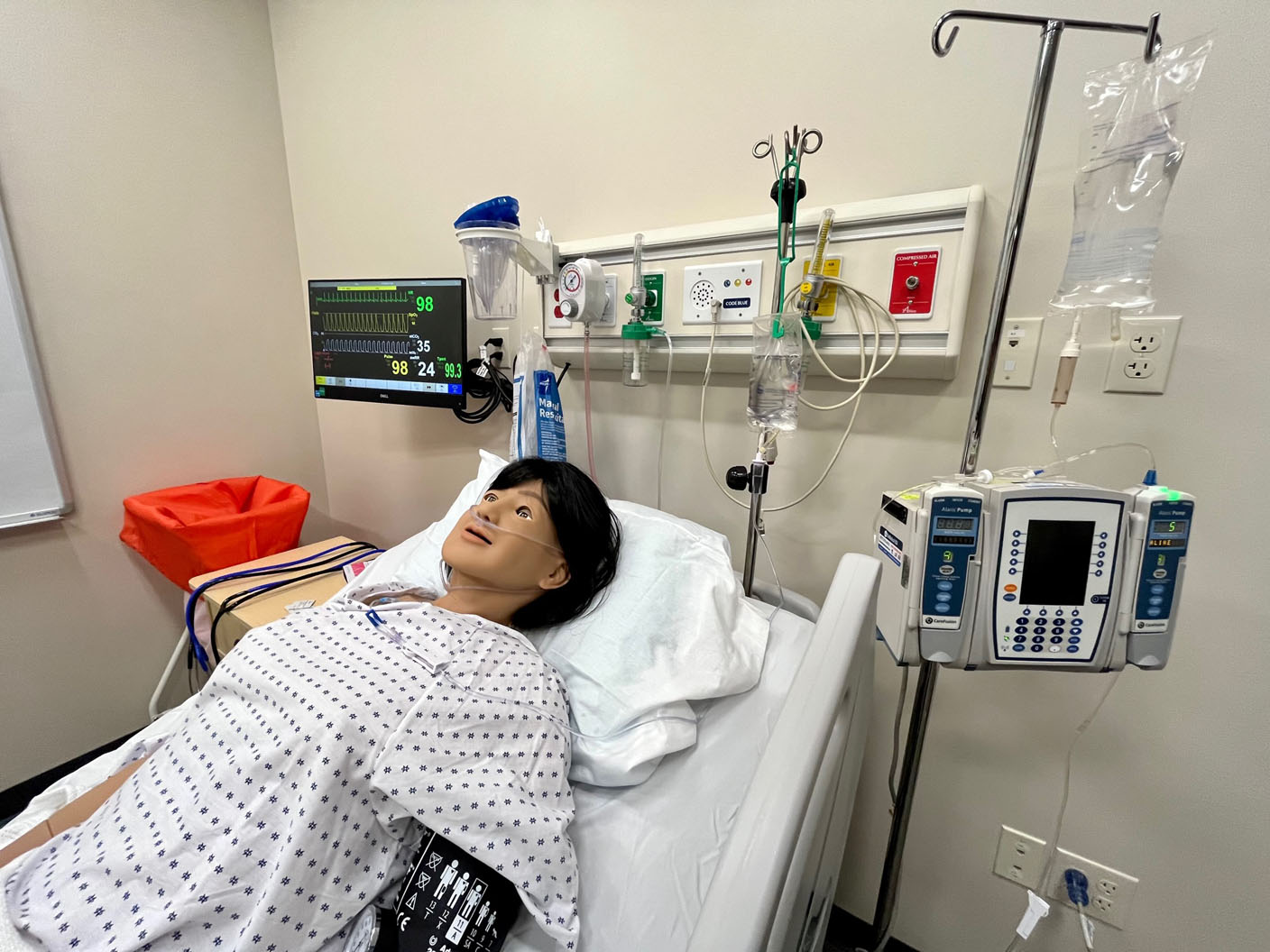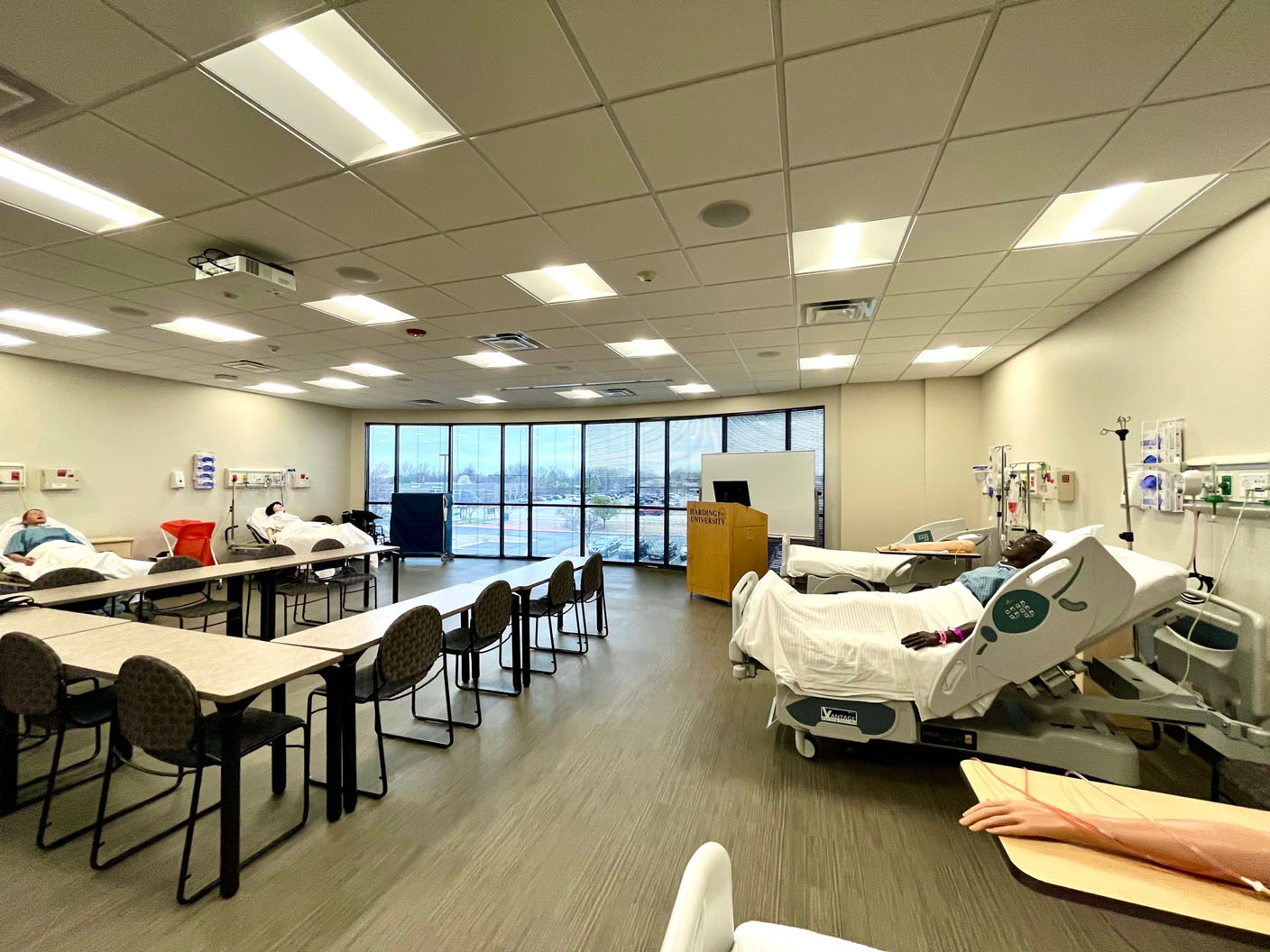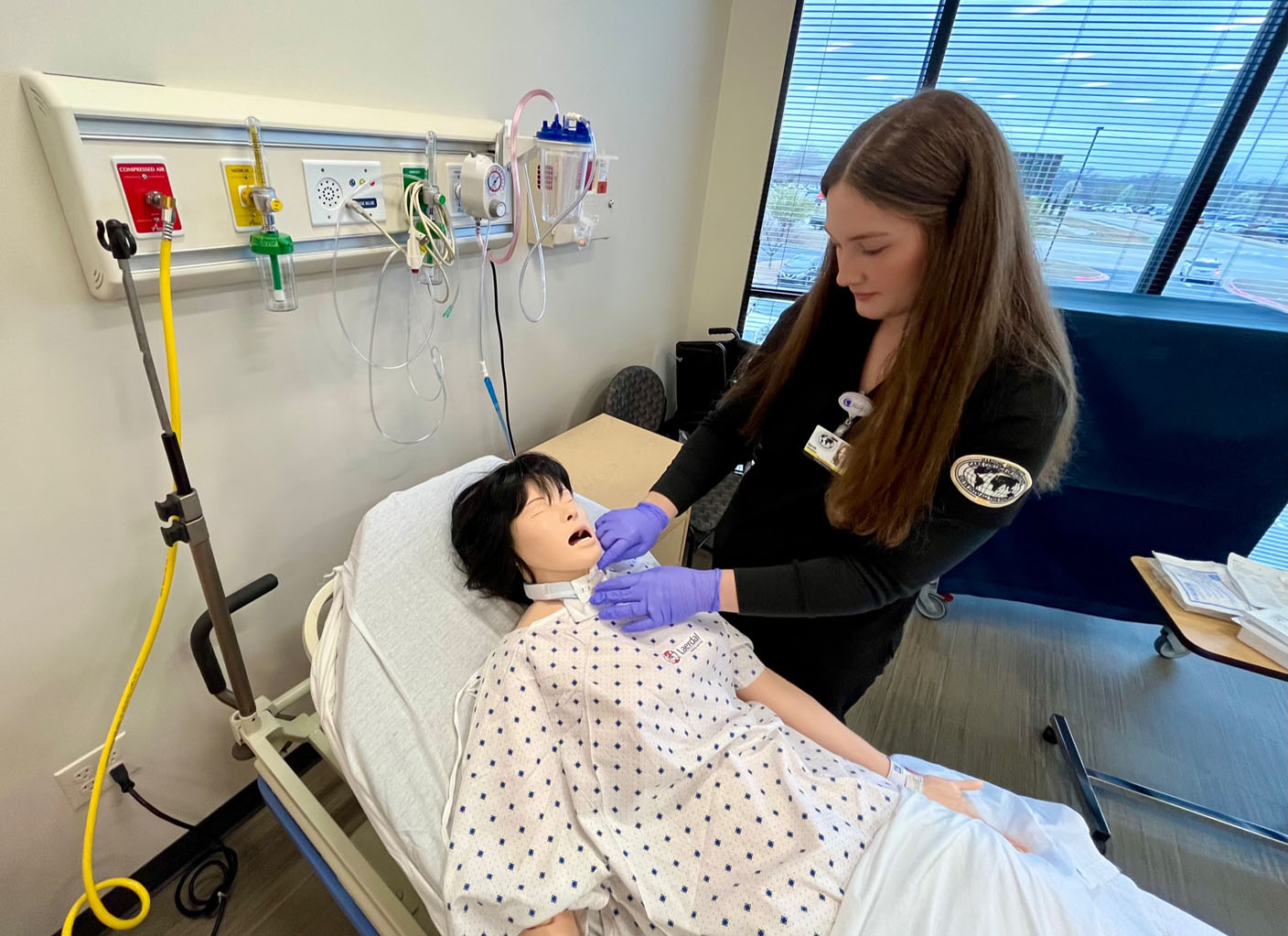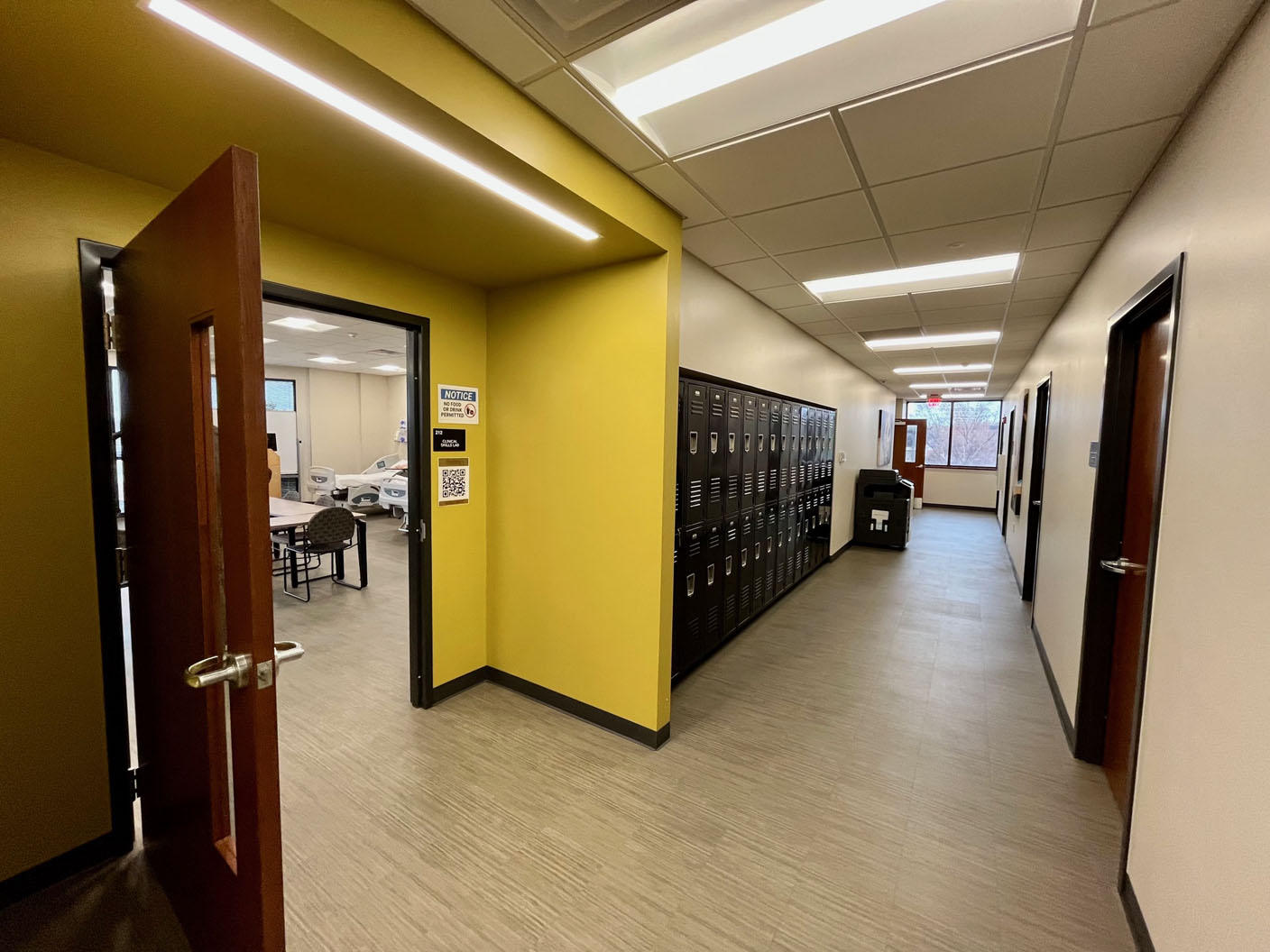A new facility and nursing program in Rogers aims to help address a need for health care providers in Northwest Arkansas.
Leaders have pointed out that an increasing number of health care professionals will be needed to keep up with the demand of the region's burgeoning population. Over the next decade, registered nurses are projected to be among the top-growing occupations in Arkansas, according to the state Division of Workforce Services.
Harding University's new accelerated bachelor of science in nursing program will train students for the health care workforce to meet this need, said Dr. Tina Wright, director of nursing services for the program. An initial class of six students began the program in January, she said.
Students attend nursing simulation labs at a new training facility at 901 S. 52nd St. in addition to receiving online resources from Harding professors and participating in clinical rotations at Mercy Hospital. The university has renovated the second floor of its west Rogers building to include rooms for meeting, taking tests and practicing new skills.
One room with six bed bays has several manikins to train students in a variety of nursing skills.
Down the hall, a simulation room has a more advanced manikin -- nicknamed Mercy by the program -- which appears to blink, breathe and have a pulse. An operator can control the health conditions of the manikin and speak through its mouth from a nearby control room. Students can practice talking with their patient in a variety of simulated scenarios, including some emergency situations, which they may not usually be able to see in clinical rotations, Wright said. Operators can also record and replay a student's responses in the room, allowing for further teachable moments, she said.
Harding joins several other nursing programs in the region.
University of Arkansas for Medical Sciences opened a nurse training facility and its own accelerated nursing program at its Fayetteville campus last summer. That program is expected to add hundreds of nurses to the workforce over the next decade, said Patricia Cowan, dean and professor of the UAMS College of Nursing.
The UAMS program is open to applicants with bachelor's or graduate degrees in any field, with certain general education and health science prerequisites.
Other educational institutions in the area offer associate and bachelor's degrees in nursing, which are required for those wanting to become registered nurses.
The University of Arkansas and John Brown University in Siloam Springs have eight-semester programs to complete a bachelor of science in nursing. Northwest Arkansas Community College offers a four-semester associate of applied science degree in nursing. The University of Arkansas at Fort Smith also has an eight-semester bachelor of science in nursing program.
Barbara Johnson, of Bentonville, is one of the students enrolled at Harding. Johnson said she had been looking to earn an accelerated nursing degree, and the location of the facility and the school's reputation made the program appealing.
The nature of the accelerated program, which allows students from different educational backgrounds to finish the nursing portion of the degree in as few as 16 months, will help Johnson transition from a previous career in law enforcement to a career in nursing. A bachelor's degree typically takes four years to earn.
The program is open to applicants with 64 credits hours or more in liberal arts and prerequisite science courses such as anatomy, physiology and chemistry. Applicants can have a bachelor's degree in any field or can have taken college courses without obtaining a degree.
The estimated cost of tuition and fees for the program is $54,296, according to the school's website.
By 2025, the United States is expected to have a shortage of between 200,000 and 450,000 registered nurses, according to management consulting firm McKinsey & Co. To meet demand, the number of new graduates entering and staying in the nursing workforce would have to double every year for the next three years, a 2022 article by the firm states.
Expanding educational opportunities and increasing the number of regional health care workers were among the recommendations included in a 2019 report published by the Northwest Arkansas Council, a nonprofit organization with members from the region's largest business, education and health care organizations.
The 2019 report and recent analyses of Medicare data have estimated Northwest Arkansas residents spend hundreds of millions of dollars annually on health care outside the region.
The data seems to show population growth in the region exceeded the health care system's capacity even before the covid-19 pandemic, said Dr. Joe Thompson, president and CEO of the Arkansas Center for Health Improvement.
